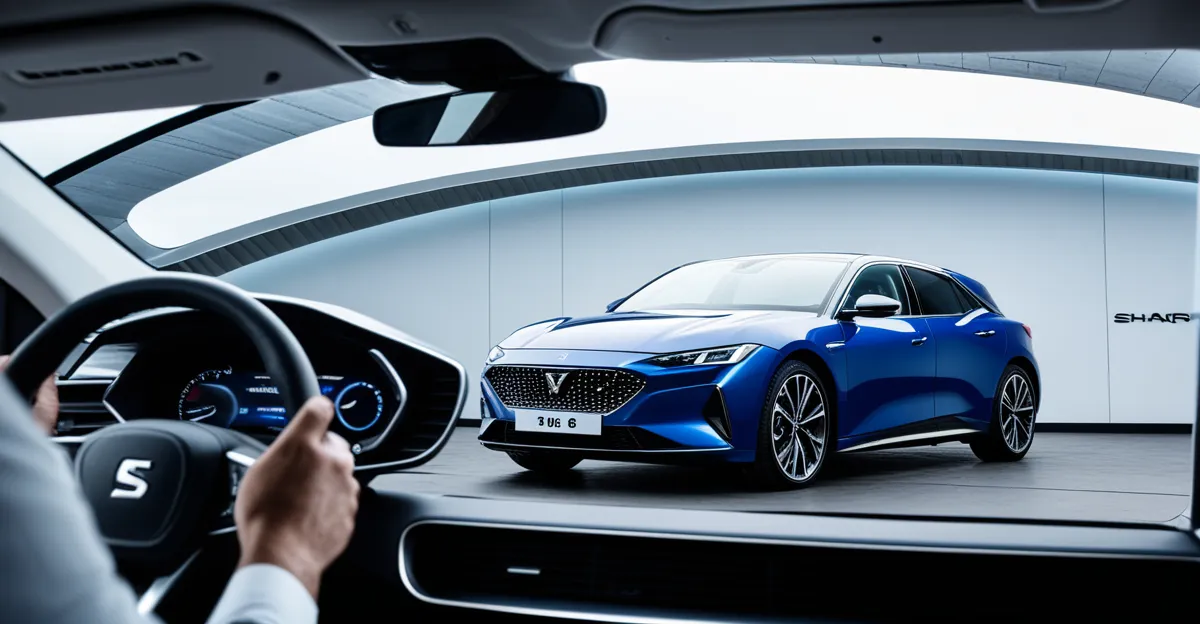Leading Innovations Transforming the UK Automotive Industry
Innovation in the UK automotive industry is pivotal for maintaining global competitiveness. Key automotive industry trends focus on electrification, digitalisation, and smart mobility, driving profound shifts across the sector. One prominent trend reshaping the market is the surge in electric and hybrid vehicles, supported by advances in battery technology and charging infrastructure. This shift not only caters to evolving consumer preferences but also aligns with stricter emission regulations.
Emerging future automotive technology includes autonomous driving systems utilizing artificial intelligence and connected vehicle platforms. These innovations enhance safety and efficiency, representing a move towards integrated urban mobility. Moreover, sustainable manufacturing practices and circular economy principles are increasingly prioritized, reducing environmental impact and encouraging material reuse.
Also to discover : Why Are Electric Vehicles Gaining Popularity in the UK Market?
Innovation acts as a catalyst for market evolution by improving vehicle performance, consumer experience, and environmental standards. It also stimulates collaborations between automakers, technology firms, and government bodies to accelerate research and development. Collectively, these advancements uphold the UK’s position as a leader in the automotive sector while addressing pressing economic and environmental challenges.
Autonomous Vehicle Development and Smart Mobility
A closer look at the future of driving in the UK
Also to discover : How is the UK automotive industry responding to consumer demand for sustainability?
The development of autonomous driving UK technologies marks a major leap forward in UK automotive innovation. Pilot programmes across the country test self-driving cars equipped with sophisticated sensors and AI algorithms. These vehicles rely heavily on connected vehicles technology, enabling real-time data exchange between cars, infrastructure, and cloud systems.
Connectivity enhances safety by allowing vehicles to anticipate hazards and optimise traffic flow, significantly reducing accident risks. Smart mobility solutions integrate these autonomous platforms with public transportation and urban planning, creating seamless, eco-friendly travel networks. AI-driven analytics also improve route efficiency, lowering emissions and congestion.
The progression of future automotive technology in this domain not only pushes safety and convenience but also supports the UK’s goals for sustainable urban mobility. Ongoing trials demonstrate improving reliability and regulatory acceptance, both critical for widespread adoption. Thus, autonomous and connected vehicle technologies redefine how people move within cities, transforming the UK’s transportation landscape comprehensively.
Electric and Hybrid Vehicle Advancements
Evolving powertrains driving UK market change
The rise of electric vehicles UK and hybrid technology marks one of the most transformative shifts within the UK automotive innovation landscape. This growth is propelled by significant advances in battery technology, such as increased energy density and faster charging capabilities, which tackle previous limitations like range anxiety and inconvenient charging times. Improvements in charging infrastructure, including the expansion of rapid chargers across urban and rural areas, further facilitate higher EV adoption rates.
Government incentives play a crucial role in accelerating this trend. Subsidies, tax breaks, and grants reduce upfront costs, making electric and hybrid cars more accessible to consumers. For manufacturers, funding supports R&D for efficient powertrains and battery recycling methods, aligning with overall sustainability goals.
The continuous push toward electric and hybrid vehicles reflects broader automotive industry trends prioritising decarbonisation and cleaner mobility solutions. This dynamic shift not only reshapes consumer preferences but also reinforces the UK’s competitive edge by fostering innovation in sustainable transportation technologies. As battery technologies evolve and infrastructure expands, the UK is positioned to lead future developments in zero-emission vehicles nationwide.
Sustainable Manufacturing and Circular Economy Initiatives
Eco-conscious transformations in UK automotive production
Sustainable automotive manufacturing is becoming a cornerstone of UK automotive innovation, reflecting growing commitments to reduce the sector’s environmental impact. Manufacturers are increasingly adopting eco-friendly materials like recycled plastics and bio-based composites, which lower carbon footprints and support circular resource use. The integration of energy-efficient production methods, such as renewable power sources and waste heat recovery, further aligns with these green objectives.
The circular economy approach emphasises minimizing waste and maximizing reuse through strategies like component remanufacturing and end-of-life recycling. This reduces reliance on virgin materials and lowers overall emissions across the vehicle lifecycle. Many industry players undertake rigorous lifecycle analysis to identify and remedy ecological inefficiencies in design and production phases.
Industry collaborations are vital, fostering innovation in recycling technologies and sustainable supply chains. Partnerships between automotive firms, research institutions, and government agencies accelerate the spread of circular economy principles. Collectively, these efforts not only enhance sustainability but also contribute to cost savings and regulatory compliance, strengthening the UK’s position in global automotive markets committed to environmentally responsible manufacturing.








